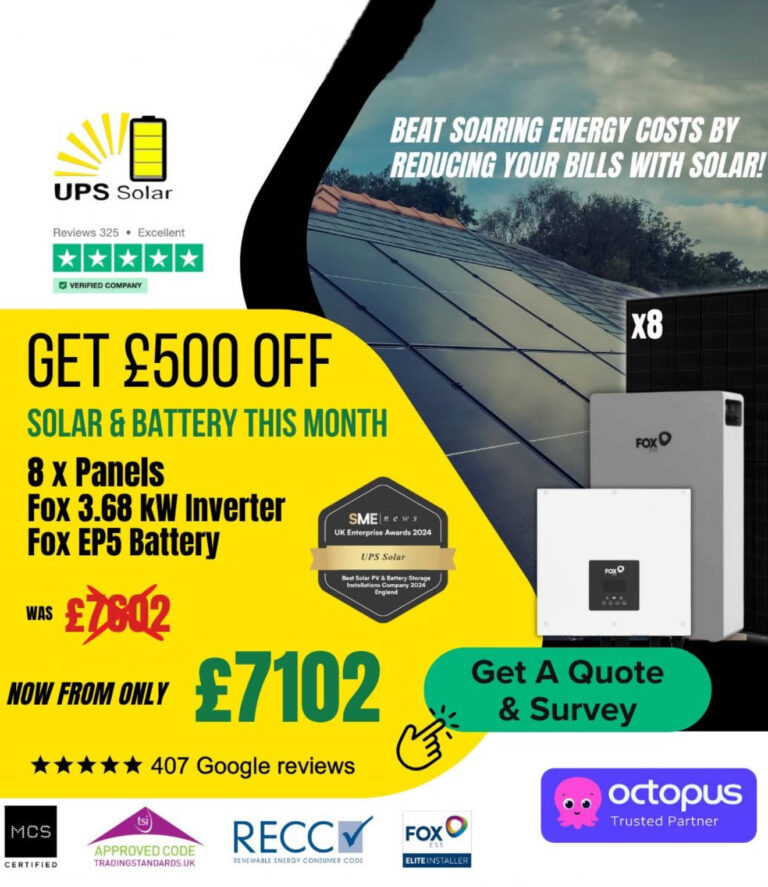
We install solar panels and battery storage solutions nationwide, with teams situated around the country.
| Monday | 9:00 – 18:00 |
| Tuesday | 9:00 – 18:00 |
| Wednesday | 9:00 – 18:00 |
| Thursday | 9:00 – 18:00 |
| Friday | 9:00 – 15:00 |
| Saturday | 10:30 – 13:30 |
| Sunday | Closed |
UPS Solar Limited
Registered in England and Wales.
Company Registration Number: 14489131
Registered Office Address:
7-9 Station Road, Hesketh Bank, Preston, Lancashire, England, PR4 6SN
VAT Number: 437780172
RECC – trades we are TrustMark registered for:
Copyright 2025 – UPS Solar | All Rights Reserved
Privacy Policy | Cookie Policy | Our Terms & Conditions | Sitemap